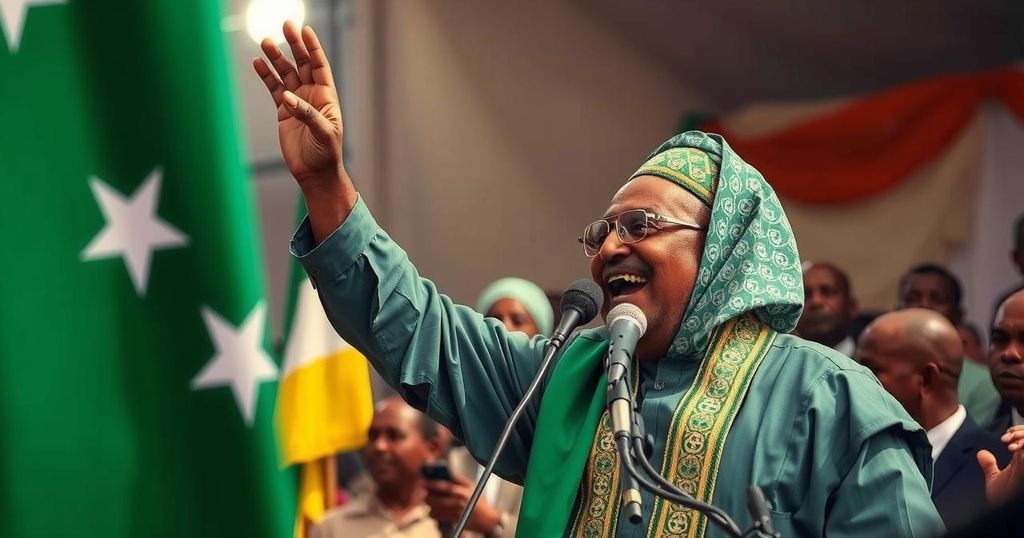Abdirahman Mohamed Abdullahi Elected President of Somaliland, Aiming for Global Recognition

Abdirahman Mohamed Abdullahi, leader of the Waddani Party, has won the presidential election in Somaliland, securing 64% of the vote against incumbent Muse Bihi Abdi. This election which had been delayed for two years emphasizes Somaliland’s ongoing pursuit for international recognition since its 1991 independence from Somalia, despite its stable governance and self-administration.
Abdirahman Mohamed Abdullahi, also recognized as `Irro`, has been elected as the president of Somaliland following a decisive victory in the recent elections. As the leader of the Waddani Party, he garnered approximately 64 percent of the votes, defeating the incumbent President Muse Bihi Abdi, who only achieved about 35 percent. This election, which took place after a two-year delay caused by funding issues, underscores the region’s quest for international recognition that has remained elusive since its declaration of independence from Somalia in 1991. During the campaign, both candidates pledged to rejuvenate the struggling economy and enhance efforts for securing global acknowledgment of Somaliland’s status. Despite a stable governance structure, Somaliland continues to face challenges due to its lack of international recognition, which hampers access to international financial systems and complicates travel for its populace. The newly elected government in Hargeisa is working towards finalizing an agreement with Ethiopia that would allow the latter access to sea routes, while this major deal has sparked tensions with Somalia, which perceives such actions as a threat to its sovereignty. The election results are expected to influence Somaliland’s interactions not only with its immediate neighbors but also with international powers, particularly the United States, where support for Somaliland’s recognition has been articulated by several former officials who served during the Trump administration. This ongoing diplomatic pursuit highlights the complexities surrounding Somaliland’s status and the broader implications for peace and stability in the Horn of Africa.
Somaliland, a self-declared independent region of Somalia, has sought international recognition since its separation from the Somali state in 1991. Unlike Somalia, which has faced prolonged instability and conflict, Somaliland has established a more stable political framework, maintaining its own government, currency, and security apparatus. However, due to its unrecognized status, it has limited access to international aid and financial resources, significantly affecting the lives of its citizens. The region’s desire for formal recognition is further complicated by its strategic relationships in the Horn of Africa, particularly with Ethiopia, which is pivotal for regional stability and trade.
Abdirahman Mohamed Abdullahi’s election as president marks a significant shift in Somaliland’s political landscape, with major implications for its aspirations for international recognition. The election illustrates the region’s ongoing challenges, including economic rejuvenation and navigating diplomatic relations with neighboring Somalia and Ethiopia. The results could play a critical role in the future of the Horn of Africa, as Somaliland continues its quest for acknowledgment on the world stage.
Original Source: www.aljazeera.com








